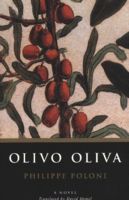 Turns out my local library service runs this you beaut service called 'Book Express' for city commuter types. A stall at the train station complete with network accessed laptop, a friendly and informative person on the other side of the stall, and a bunch of books and audio books to borrow. All this between 5.30ish and 7ish am. And me lugging a laptop and some reading for work but glad of any excuse not to do that and be immersed in fiction instead. Sipping coffee, reading, it’s almost like being on a moving café rather than a mode of transport. Almost.
Turns out my local library service runs this you beaut service called 'Book Express' for city commuter types. A stall at the train station complete with network accessed laptop, a friendly and informative person on the other side of the stall, and a bunch of books and audio books to borrow. All this between 5.30ish and 7ish am. And me lugging a laptop and some reading for work but glad of any excuse not to do that and be immersed in fiction instead. Sipping coffee, reading, it’s almost like being on a moving café rather than a mode of transport. Almost. I borrowed a couple, one was “Olio Oliva” by Phillipe Poloni (1997 Stoddart publishing). Read it that day, was one of those sparsely type fonted slim books that you just whip through (especially when you are on your derrière for 4 hours with no distractions).
It starts with the relationship between an olive tree and its olives. Describes the anguish of an olive wanting to be free of the tree, the trees contempt for its ‘droppings’, the tree as patriarch. The gist of the story then is boy meets girl, boy beds girl, olive tree drops olive from great heights into the steamy sea of lovemaking below, girl has olivish baby. Sounds a bit like ‘Leolo’ that Italian movie where conception takes place in the back of a tomato truck? Yes, I thought that too. It’s all about the olive in Sicily, the role of landowners versus the landless poor, resentment, fear of losing hold of power, and ultimately revenge. The writing was lovely, sparse and poetic, translated from the Italian by David Homel. It did remind me of Calvino in some of its language but perhaps that is just due to the meandering, observational, dreamy nature of the writing, and the playing with words - or maybe it’s just that these are probably the only Italian authors I’ve read (that’s a bit tragic – so anglocentric in what I read…). It captured a very languid feeling of a slow, hot, worn out Sicily rather well, and gave an interesting picture of the successive waves of invaders that have moved through that part of the world, and the layering of culture and religion that takes place as a result.
Characters? The sicario in the new country. Some quirky ancient craftsmen accompanied by a donkey, who has his own bank account and gets paid the lions share of their fee. Hunchbacked moralists who guard over unwed mothers in crumbling ruins. The patriarch who is superstitious and ruthless in protecting his empire. Some of these characters reminded me of people from Loius de Berniers novels – they are irrational and contradictory and flawed and colourful.
This is a bit like a gentle, lazy, loping fairy tale, which doesn’t deliver much in the way of ‘action’, and everything that happens has already been foretold at the start. Even the end is a kind of poetic anticlimax. However, this is entirely in keeping with the setting of the tale, and what it says are the characteristics of that place – so this kind of works.
It made me want to go lie under an olive tree and eat pasta and drink wine.
‘The young olive tree had a soul. It was possessed of a memory. A kind of heredity. Awkwardly, it paraded the military pride of its ancestors. Poor little tree! It was but a simple domesticated olive producer among the million of other domesticated Mediterranean copies, all planted in rigorously straight rows. No more petalism! Doric temples a thing of the past! Polytheist ceremonies accompanied by chanting and pungent Levantine incense – all obsolete. Its leaf would no longer serve as a model for those early Christian mosaicists who decorated their catacombs, late at night, illuminated by the oil of its fruit. All that had happened, long ago… All that belonged to another time. The scion was a heraldic tree no more, but the object of intensive rationalised agriculture. And the haughty olive tree knew nothing of that!’ (p.4)
3 comments:
Nice site!
[url=http://jqedryjw.com/bvnc/cuer.html]My homepage[/url] | [url=http://ekzaqhfr.com/htdl/mxfa.html]Cool site[/url]
Nice site!
My homepage | Please visit
Well done!
http://jqedryjw.com/bvnc/cuer.html | http://avzwpvlr.com/quct/ytip.html
Post a Comment